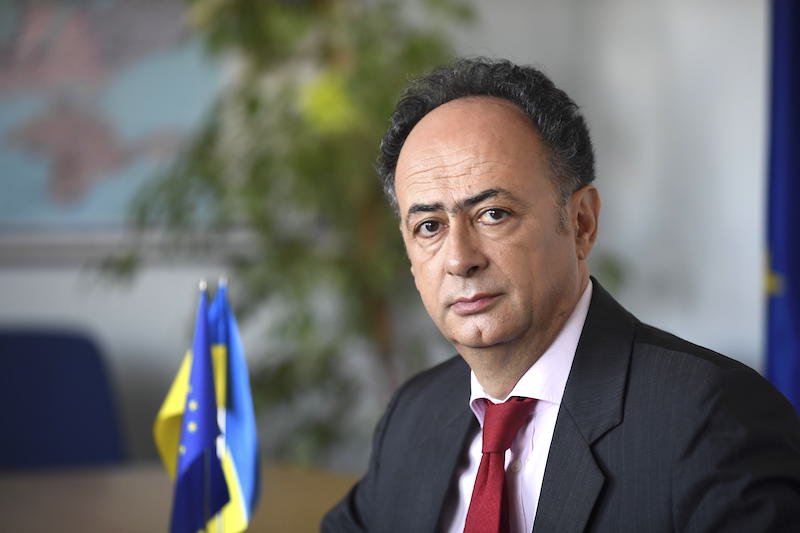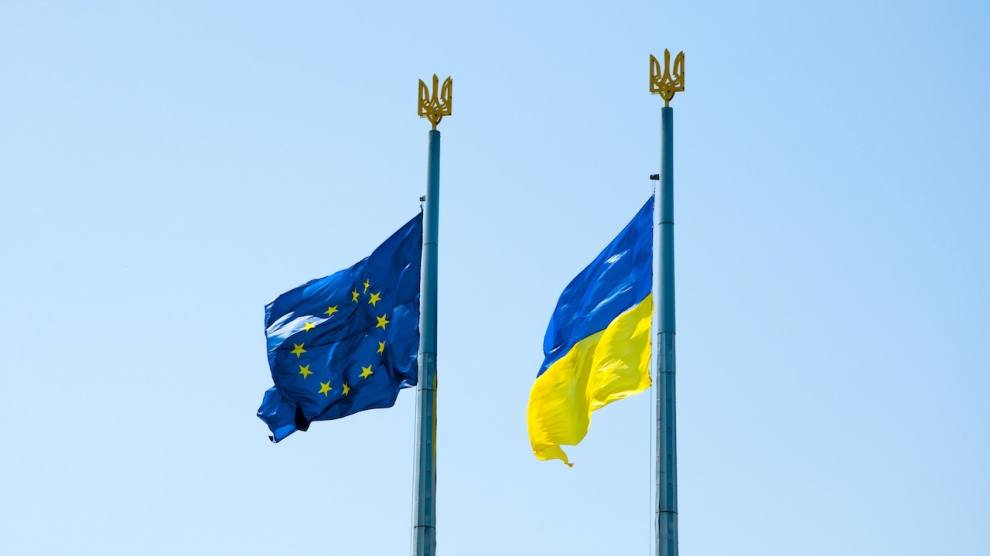In December 2016, the European Council reconfirmed its commitment to international law and the territorial integrity of Ukraine, as well as the conclusion of the EU-Ukraine Association Agreement, including the establishment of a deep and comprehensive free trade area.
Ratification of the EU-Ukraine Association Agreement in all 28 EU member states has always been our goal. Let’s not forget, that the aim of an association agreement is to support partner countries on their path to becoming stable and prosperous democracies. The European Council adopted a legally binding decision of the leaders to facilitate the ratification, also in the Netherlands. This decision addresses all the concerns expressed by the Dutch voters earlier in 2016. Now, the responsibility lies with the Netherlands. The ratification is important not only for Ukraine, but also for Europe’s geopolitical standing and credibility.
As concerns the Deep and Comprehensive Free Trade Agreement; it is in force, it is legally binding and it is being implemented progressively. The achievement of a closer political association and economic integration with Ukraine is a medium-term project. The Association Agreement is a very good roadmap for this and, if fully implemented by both sides in the next seven to ten years, it will bring very visible and qualitative changes to Ukraine.
First of all, it will mean the implementation of a variety of economic and sector reforms in Ukraine: from energy and the environment to decentralisation and better administration. Secondly, it will help Ukraine approximate its legislation and technical standards to the EU ones, which will open up the EU’s single market to Ukrainian businesses and will remove non-tariff barriers.
Despite a very challenging business and investment climate coming from initial illegal annexation, we are starting to see improvements in bilateral trade with the EU (growth in the last 12 months stands at approx. 3-4 per cent).
It is also important to stress that the EU is not only focusing on support for long term economic reforms, but it is also paying a great deal of attention to horizontal problems such as the fight against corruption; public administration reform and support for small and medium businesses, which will benefit from the launch of the EU4Business programme.
Since 2014, €2.21 billion in loans has been disbursed to Ukraine by the EU. Subject to the effective implementation of policy measures detailed in the Memorandum of Understanding and related to Macro-Financial Assistance III, two further tranches of €600 million each are expected to be made available to Ukraine by the end of 2017. In the 2015-17 period, the EU will provide a major €300 million support package with its priority focussed on the reform areas that were established together with Ukraine and the EU member states.
The focus for 2015-16 was on transparent and accountable governance in anti-corruption, public administration reform, rule of law and decentralisation. 2017 will focus on energy efficiency, public finance management and economic recovery to the conflict affected regions in the East.
I also believe that visa-free travel will further facilitate people-to-people contacts and will strengthen business, social and cultural ties between the European Union and Ukraine. This will help the efforts of the Ukrainian authorities to carry out far-reaching and difficult reforms with a significant impact on the rule of law and the justice system.
Additionally, Ukraine has realised a very demanding roadmap, in particular in fighting organised crime and corruption, in order for its citizens to be able to travel to the EU without a visa for short stays of up to 90 days in any 180-day period. These reforms have brought Ukraine closer to the EU and will facilitate our cooperation for the years to come.

Ukrainian people sacrificed their lives for freedom, democracy and dignity and we, as the European Union, highly value this. Ukraine is one the largest European countries and at the very heart of the continent. With modernisation and a successful transition in the sights of the current Government — it will occupy a much more significant place in future trade and investment relations with the EU. We share the same European values and respect for human rights and fundamental freedoms and we are committed to political association and deeper economic integration.
In short, the European Union is committed to a strong and deep partnership with Ukraine and we stand by the Ukrainian citizens in their endeavours to build a better country. The European Union remains firmly committed to Ukraine’s sovereignty and territorial integrity. It does not recognise, and continues to condemn, the illegal annexation of Crimea by the Russian Federation.
The EU will continue to fully implement this non-recognition policy and has imposed restrictive measures against the Russian Federation, in response to the illegal annexation of Crimea and the deliberate destabilisation of Ukraine.
_______________
The views expressed in this opinion editorial are the author’s own and do not necessarily reflect Emerging Europe’s editorial policy.






Add Comment